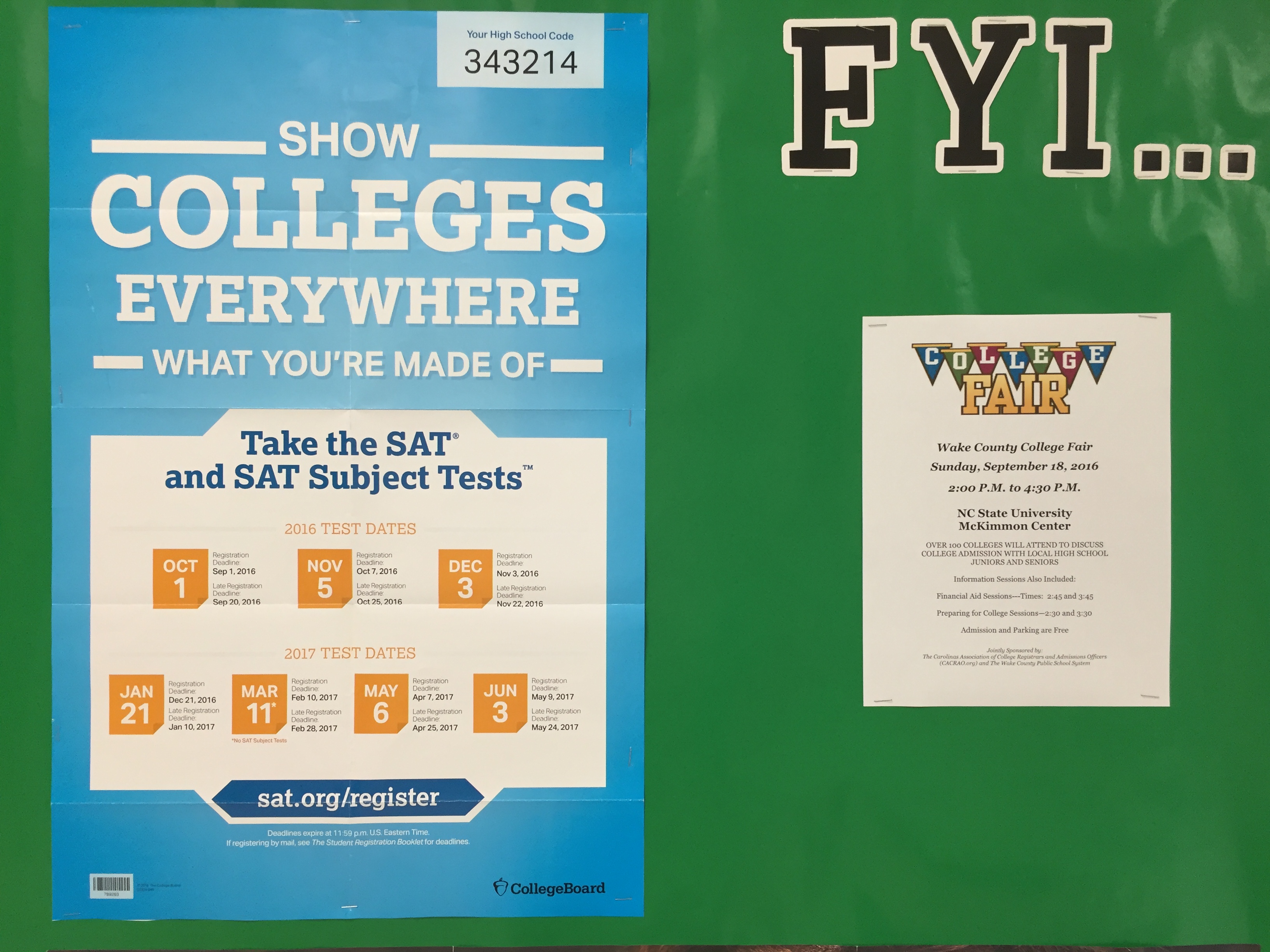In March of the 2016 school year, the SAT recieved a facelift. Not only is the testing time shorter, but the number of questions has been drastically reduced as well. In addition to the format changes, the SAT writing portion received a few alterations as well. The new essay requires a higher level of thinking, and students have the ability to opt out of it all together.
“The previous SAT had a writing component to it… I felt like it was a reasonable writing component, but I don’t know how much it really measured the kind of thinking and writing that you are suppose to do in college and that’s kind of the issue that a lot of teachers have with it,” said Robert Phillips, AP English Language and Composition teacher.
This new writing requirement is more complex, giving colleges an advanced piece of writing to view. “It requires textual analysis and evidence based writing, and it’s argument based in some respects,” said Phillips.
The College Board altered the writing portion so that it more closely resembles college writing. Common Core curriculum was changed a few years before making it more evident that the SAT test itself needed the facelift it received this year (the curriculum for Common Core requires a higher level thinking, lessons no longer revolve around plot summary– English classes– and more in depth discovery). As education changes, the standard exams must align to meet these changes. However, why is the essay portion optional when it serves an important role in the college admission process?
The optional essay portion forces a change in a college’s requirements for the SAT. Most Ivy Leagues or prestigious schools require students to write the essay, for example North Carolina’s very own Duke University, but other schools in the NC system have no opinion. To look at other school’s instate and out of state requirements click here.
Due to the writing portions optionality, it is now up to students when it comes to whether or not to participate. The writing portion steepens the original SAT price of $45 to $57. This can be the determining factor on whether or not a student takes the writing component. Of course there are waivers to help pay for the test, but students are still required to pay the additional $12 for the essay, and, since the essay is optional, most may choose to opt out of this portion all together.
Students who choose to ditch the essay portion will face consequences in the future if/when schools change their policy on what is required, and Phillips doesn’t doubt that change is coming. “I would be surprised if we don’t see by… the end of this school year, but definitely as we go into next year that some schools will certainly shift to recommending it, and I suspect that some of your top tier schools will probably shift to requiring it,” said Phillips.
Pamela Saldahna, guidance counselor, said, “If the student knows what college to which he/she plans to apply, I recommend researching those colleges’ requirements and then making a decision about the optional writing portion. If your colleges require it or encourage their applicants to take it, then I recommend you take it. Otherwise, there’s no need to take it. If the student doesn’t know where he or she plans to apply, I’d recommend taking it just so that you have all your bases covered.”
In addition, Saldahna recommends for students with strengths in writing to take the writing portion to showcase their abilities to colleges– the intended purpose of the writing.
This year, like Phillips said, will be the deciding factor of the SAT’s writing portion staying optional. “Because the format is so new, colleges have not yet had a chance to collect data on how their students’ performance correlates to their SAT scores,” said Saldahna.
Not having a launching pad on what to base off of for admissions makes it difficult for colleges to determine their requirements. Once data is collected from this year’s testing, shifts in requirements may begin to appear.

Leave a Reply